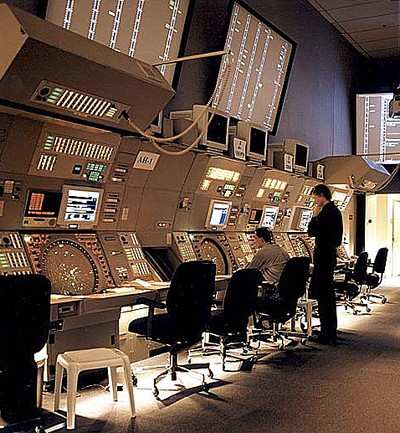Controllers Blame Staff Shortages
The Federal Aviation Administration is looking into several
errors made by air traffic controllers at the Memphis Air Route
Traffic Control Center (ZME), including six incidents in one week
where aircraft were allowed to get too close together.

In one day, August 14, a King Air and and ExecJet corporate
plane were allowed to come within 3.6 miles of each other during
final approach at Nashville International airport. Later on, an
American Airlines MD-80 came within 2.5 miles of a commuter jet
flying at 600 feet above it at Memphis International Airport.
FAA spokesperson Laura Brown said the errors were "not what we
would call the highest-severity category errors. On an A, B, C
scale, they were C-level errors."
Controllers blame all the errors to short staffing, as well as
radio static interfering with communication and just plain
miscommunication, according to the Memphis Commercial Appeal.
"We have never had this many mistakes at one time in Memphis,"
said Ron Carpenter, head of the National Air Traffic Controllers
Association. "What caused a lot of this, in my opinion, is that we
are working so short right now."
"We believe we are 101 controllers short of the journeyman
controllers we were allotted," he added. That means a shift that is
supposed to be staffed by 13 to 14 journeyman controllers now has
eight or nine, according to Carpenter.
Two of the six errors made in a week's time were made by
trainees while being monitored by senior controllers.

The Memphis center will add 15 more controllers this October to
augment the current 63 trainees there currently. Even though they
are not fully certified as controllers, they are qualified to work
the positions where they have been trained, Brown said.
"They become part of staffing even though they are not fully
certified. It does not mean they are not functional in some
respect," she said.
The FAA says it hired 1,100 new controllers in 2006, and will
hire 1,400 this year.
According to the new FAA staffing plan for the next 10 years,
the range of allotted controllers at the Memphis center is 244-298.
Brown said these new ratios were agreed upon by controllers during
negotiations, and should help accurately reflect actual workloads
and lead to more precise staffing.
NATCA responds that in the past, most areas were staffed on a
daytime shift with 13-14 veteran controllers. If there were not
that many controllers on duty, overtime was called in and leave for
personal or vacation time was prohibited. The union says now, most
shifts are beginning with 8-9 controllers who are still tasked with
training duties.
At the beginning of the summer vacation period, overtime was
scheduled and controllers were working six-day weeks. This overtime
was used to cover training new controllers along with training
veteran controllers on a new procedure. Fatigue set in, but "at
least the coverage was there for the shifts," Carpenter said.

However, he added, "during the week of August 5th, scheduled
overtime was cancelled. Those same controllers are now forced to
work with less people and sectors combined. Combining sectors means
the controller is working twice the airspace they normally would be
responsible to control."
On the morning of August 18, Carpenter said, there were five
people scheduled to start the day in Area 6, with a total of 8
certified controllers by the end of the day. "In the past,"
Carpenter said, "if there were not 11-12 controllers starting the
day, overtime was called. In this case, management refused."
 SpaceX to Launch Inversion RAY Reentry Vehicle in Fall
SpaceX to Launch Inversion RAY Reentry Vehicle in Fall Aero-News: Quote of the Day (04.23.24)
Aero-News: Quote of the Day (04.23.24) Aero-News: Quote of the Day (04.20.24)
Aero-News: Quote of the Day (04.20.24) ANN's Daily Aero-Linx (04.20.24)
ANN's Daily Aero-Linx (04.20.24) Aero-News: Quote of the Day (04.21.24)
Aero-News: Quote of the Day (04.21.24)





